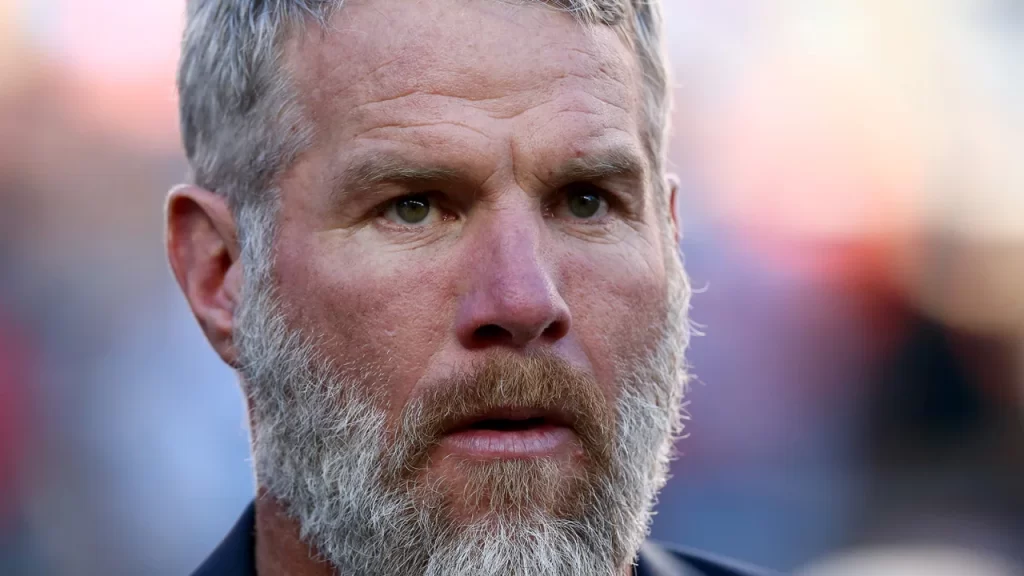NFL Legend Brett Favre Fights Civil Lawsuit Over Welfare Scheme
The Mississippi Supreme Court has issued a significant ruling, announcing that former NFL quarterback Brett Favre will not be dismissed from a civil lawsuit initiated by the state. This legal action aims to recoup millions of dollars that were distributed as part of a statewide welfare fraud scheme, which has drawn considerable attention and concern.
In its decision, the three-justice panel rejected Favre’s appeal, a move that adds to the ongoing legal proceedings. Efforts to reach Favre’s representation for a comment on this development have been made by CNN.
Favre’s legal team has argued that the state’s Supreme Court should allow him to be removed from the lawsuit, emphasizing that he did not derive any financial benefits from the transfer of funds from the Mississippi Department of Human Services (MDHS) to the athletic department of the University of Southern Mississippi, his alma mater. They assert that dismissing Favre as a defendant is crucial to prevent further damage to his reputation, as they view the claims against him as baseless and sensationalized by public officials to garner attention.
The context of this case lies in a 2020 state audit that unveiled significant misappropriation of funds amounting to more than $77 million from a welfare program designed to support the most vulnerable families in Mississippi. These funds were reportedly used for various purposes, including purchases of expensive cars, support for a private school, and projects associated with celebrities and politically connected individuals.
A portion of these funds was allocated for constructing a volleyball facility at the University of Southern Mississippi, as well as an investment in a company aiming to develop a concussion drug—a cause that Favre actively supported. The state’s lawsuit alleges that Favre was the “largest individual outside investor and holder of corporate stock” in the company known as Prevacus.
It is noteworthy that Favre has not faced criminal charges in relation to the welfare fraud scheme. Nevertheless, he is among more than three dozen individuals and entities named in the civil suit, as the state seeks to recover a portion of the misused funds.
Favre’s legal journey started with an initial motion to dismiss in November 2022, which was followed by the state revising its demand against him in the subsequent month. In February, Favre’s attorneys filed another motion, this time seeking his removal from the expansive civil lawsuit.
In April, a Hinds County Circuit Court judge denied this motion, leading Favre’s legal team to appeal the decision to the Mississippi Supreme Court in May.
Eric Herschmann, Favre’s attorney, issued a comprehensive denial of the allegations, specifically addressing the claims of misappropriated state funds used for the volleyball facility at the university where his daughter was involved. Favre did acknowledge certain involvements, such as donating autographed materials for auction, seeking assistance from third parties for the construction, and engaging in discussions with former MDHS chief John Davis, ex-USM Athletic Director Jon Gilbert, and Mississippi Community Education Center (MCEC) founder Nancy New about the facility’s construction.
Favre revealed that “John Davis suggested that MDHS could provide $4 million in funding” for the facility. Notably, both Davis and New faced legal consequences related to the scandal, with Davis pleading guilty to federal and state counts, while New pleaded guilty to various charges including bribery, fraud, mail fraud, and racketeering.

Favre also acknowledged receiving $1.1 million from MCEC in exchange for recording a radio advertisement and providing other services, which he asserts were repaid to the state. It was reported that Favre returned $500,000 in May 2020 and paid the remaining $600,000 in October 2021 for the public service ad campaign following a demand letter issued by the state auditor’s office. However, the auditor’s office maintained in 2021 that Favre still owed $228,000 in interest.
As this lawsuit continues, it raises important legal and ethical questions surrounding the use of public funds and the involvement of high-profile figures in such matters. The outcome of this case will undoubtedly have far-reaching implications, shedding light on the responsibility of individuals, even those not criminally charged, to be accountable for their actions within the broader context of welfare programs and public trust.



